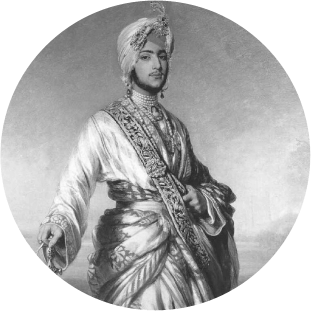
A team of Indian businessmen, living in Riga for more than 10 years, were waiting for a real Indian treat to appear in town. Giving up the wait, the gentlemen invited 4 selected cooks from Northern India to bring a true Panjabi cusine to the capital of Latvia.
The Sikh religion was founded in the late 15th century in the Panjab region by Guru Nanak (born in 1469), known collectively with his nine successors as the "Ten Gurus". He preached a message of love and brotherhood and passed on his enlightened leadership of this new religion to nine successive Gurus.
The final living guru, Guru Gobind Singh (martyred in 1708) declared his spiritual successor as Sri Guru Granth Sahib ( The Holy transcripts of the Sikhs).
During his life time Guru Gobind Singh established the Khalsa Soldier Saints ( Meaning “ the Pure “). The Khalsa upholds the highest Sikh virtues of commitment, dedication, social conscious and equality.

In 1699, on the instructions of Guru Gobind Singh the use of “Kaur” for females and “Singh” for males as a last name became mandatory for all Sikhs.
The name Kaur means Princess and acts as a symbol of equality amongst males and females and was intended to give women a sense of self respect.
The name “Singh” originated from the Sanscrit word "simha" meaning "lion", and was used to denote connection with power and authority.